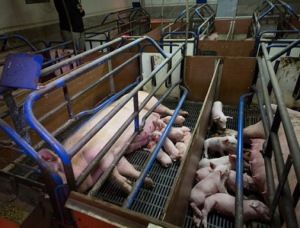News
New initiative to help foreign farm labourers learn Danish
This article is more than 7 years old.
The agricultural industry is thinking innovatively when it comes to securing new labour

Farming’s a complicated business, so best not to make a pig’s ear out of it (photo: Farm Watch/Flickr)
On the Danish island of Funen, local agricultural advisory service Centrovice has set up a Danish tuition scheme specifically to help non Danish-speaking workers.
Called ‘Dansk på staldgangen’ or roughly ‘Danish in the stables’, the idea is to help foreign agricultural labourers communicate better with their employers and, if everything goes well, show them a new future in Denmark, reports DR Nyheder.
Minimising errors
Up until now, all communication has usually been conducted in English, which can be clumsy for both parties. However, the Danish farming industry has a chronic labour shortage, and foreign labourers could be a large part of the solution – especially if they can speak good Danish.
Learning Danish can also help minimise potential errors due to communications breakdowns. Like all professions, farming has its own jargon and technical terms, so it is important that everyone understands one another.
A further step to integration
Per Brems Jensen runs a pig farm where he has foreign workers. One of them, Alena Khartencko from Ukraine, has been taking the course.
“It’s plain to see that the more confident she gets in Danish, the more she wants to talk,” said Jensen. He feels that she has become even more motivated to attain her dream of a future in Denmark.
“She’s getting a better insight into Danish culture and has a better chance to go on and become further integrated,” he explained.










































